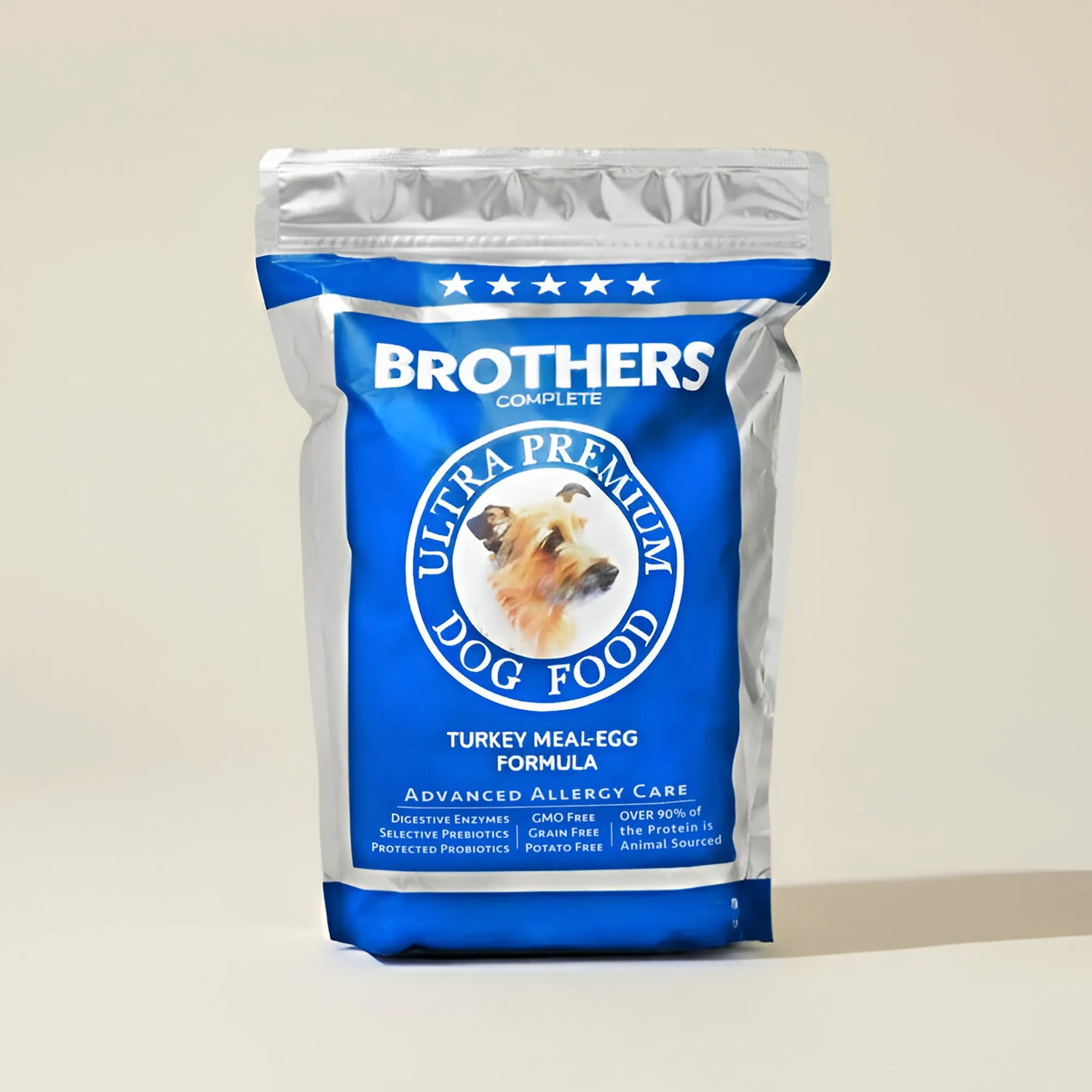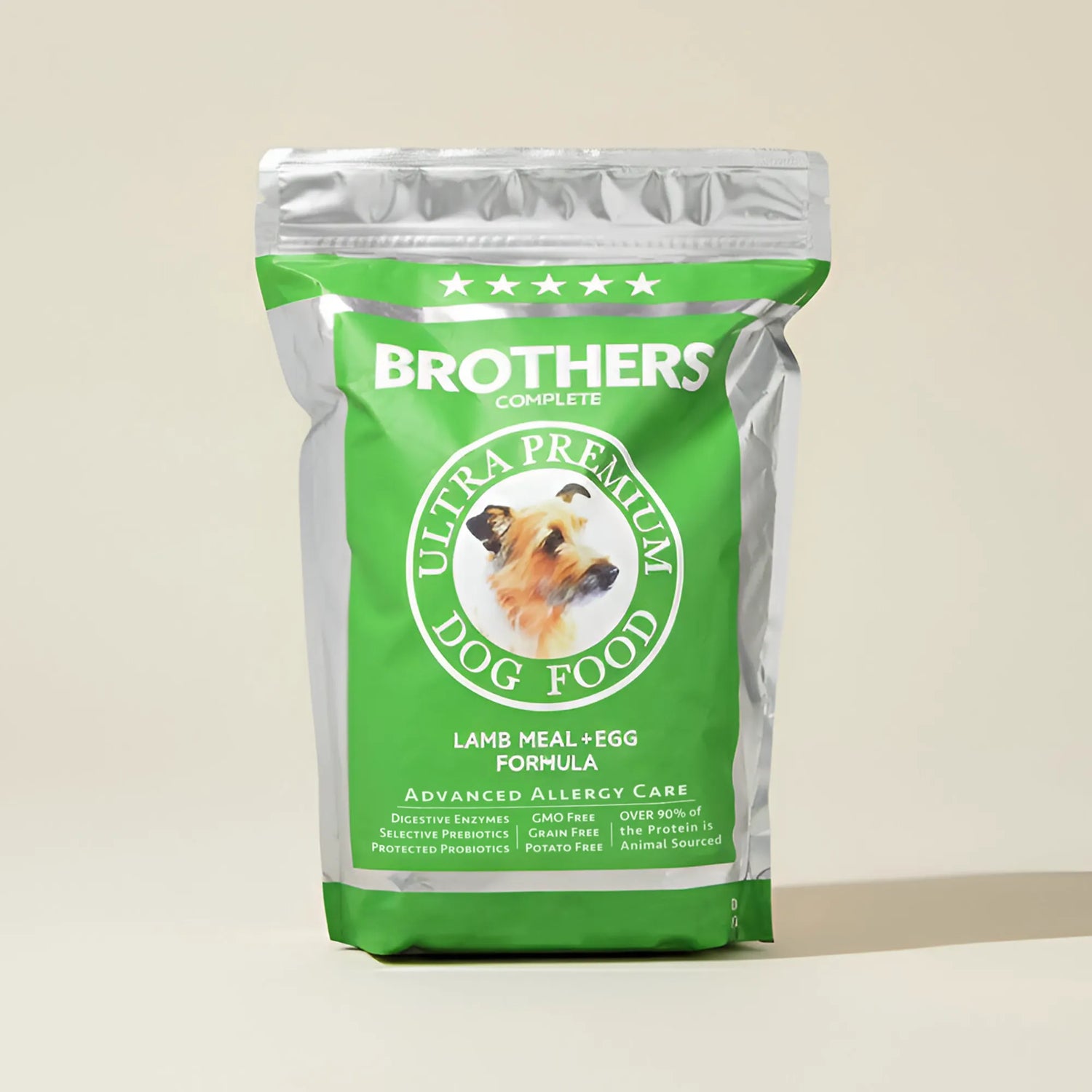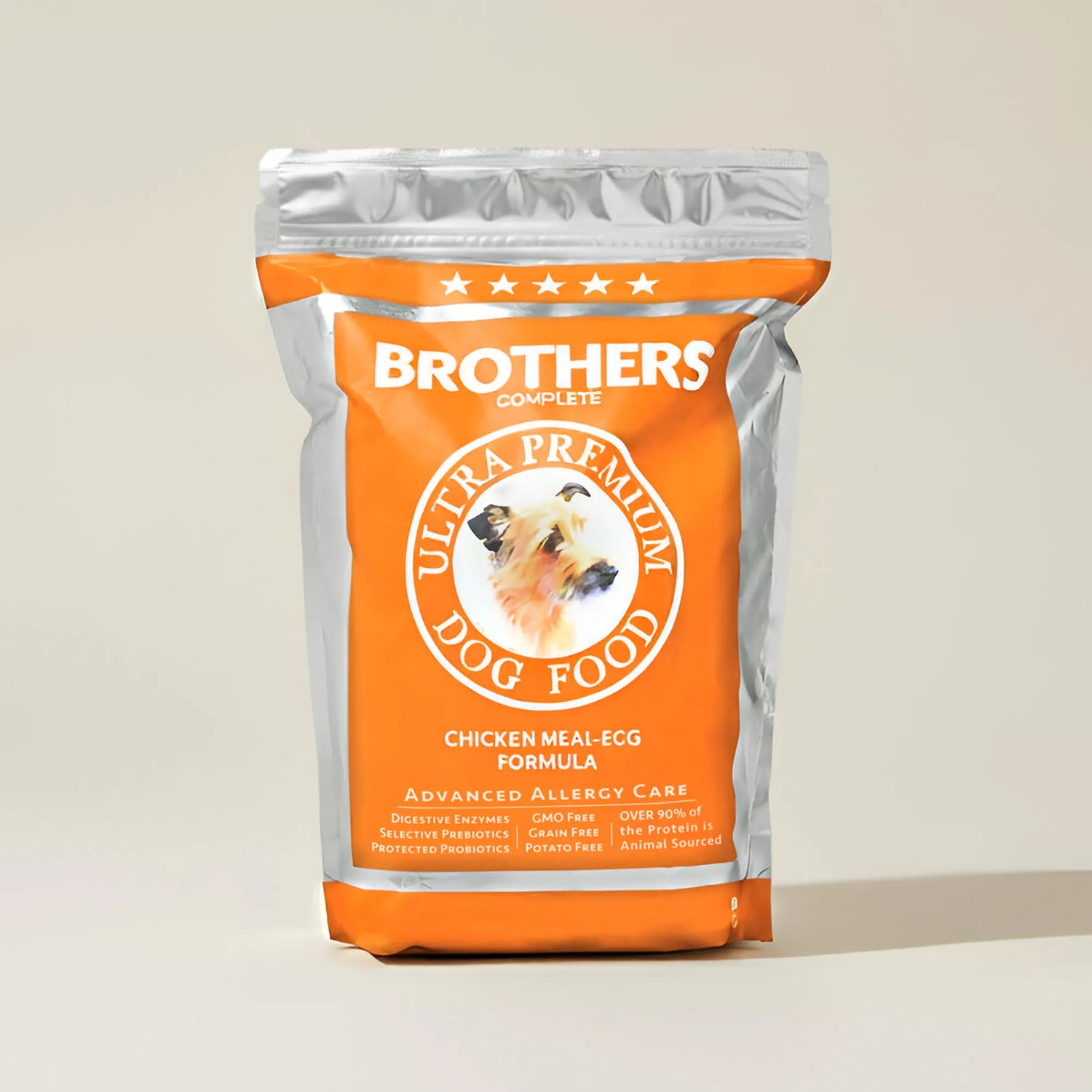
Lamb Meal vs. Lamb: What’s the Difference - and Which Is Better for Your Dog?
Summary:
You’ve seen both terms on dog food labels: “lamb” and “lamb meal.” But what do they actually mean - and is one better than the other? In this post, we’ll break down the real difference between lamb and lamb meal in dog food, what each brings to the bowl, and how to choose the best lamb-based recipe for your dog’s long-term health.
Lamb in Dog Food: Why It’s So Popular
Lamb has become one of the most common novel proteins used in dog food - especially for dogs with food sensitivities or allergies. According to PetMD, lamb is:
-
High in protein and amino acids
-
A great source of iron and B vitamins
-
Easy to digest for many dogs
-
Less likely to trigger immune responses than chicken or beef
It’s especially helpful in limited ingredient diets, where minimizing exposure to common allergens is key.
But what about lamb meal?
Lamb vs. Lamb Meal: What’s the Actual Difference?
Here’s a simple breakdown:
|
Term |
What It Is |
Water Content |
Protein Density |
|
Lamb |
Fresh or raw lamb muscle meat (may include moisture) |
~70% water |
Lower |
|
Lamb Meal |
Lamb that’s been cooked and dehydrated before being added to food |
~10% water |
Higher |
So… is lamb meal just a filler?
Not at all. According to PetfoodIndustry, lamb meal is actually more concentrated in protein and nutrients by weight, because the moisture has already been removed.
Is One Better Than the Other?
Not necessarily. It depends on:
-
How much of each is used
-
Where it’s sourced from
-
What else is in the recipe
For example:
-
A food that lists “lamb” as the first ingredient may sound good - but that lamb is mostly water, which disappears during cooking.
-
A food that uses high-quality lamb meal might actually deliver more usable protein per cup.
But here’s the catch: not all lamb meals are equal.
What to Watch For With Lamb Meal
Poorly sourced or generic “meat meals” may:
-
Be made from rendered, lower-quality parts
-
Contain protein that’s harder to digest
-
Vary widely in nutritional value
Look for:
-
Named sources (e.g., “lamb meal”, not “meat meal”)
-
Transparency around sourcing
-
Brands that focus on digestibility and gut health
When made from high-quality muscle and organ meat, lamb meal can be an excellent source of protein, especially in dry food recipes where moisture content matters.
Why Brothers Uses Lamb Meal - and Why It Works
At Brothers, we choose lamb meal over raw lamb in our dry food for one key reason:
It delivers more protein, more consistently.
Here’s what makes ours different:
-
Sourced from high-quality, antibiotic-free lamb
-
Carefully cooked to preserve nutrients
-
Paired with low-glycemic carbs and gut-friendly ingredients
-
Designed to be easily digestible and gentle on the gut
-
Free of common allergens like corn, wheat, soy, and chicken
And because we’re focused on gut health, we pair our lamb meal with:
-
Yeast-starving, low-starch recipes
The result? A lamb-based food that doesn’t just avoid allergies - it actively supports healing.
Is Lamb or Chicken Better for Dogs?
For many dogs, lamb is the better choice - especially if they’ve shown signs of:
Lamb is a less common protein, making it a better option in novel protein diets. It’s also rich in zinc, iron, and essential amino acids that support:
-
Muscle development
-
Immune health
-
Healthy coat and skin
If your dog has already tried chicken-based diets and still has issues, lamb meal dog food may be the upgrade their system needs.
Final Thoughts: Know What’s In the Bowl
It’s easy to get caught up in label language - but what matters most is:
-
The quality of the ingredients
-
The digestibility of the protein
-
The functionality of the formula as a whole
Fresh lamb sounds great, but in a dry kibble, high-quality lamb meal may be even more beneficial. It all comes down to sourcing, preparation, and balance.
Sources
-
PetfoodIndustry: https://www.petfoodindustry.com/nutrition/article/15464635/lamb-and-lambs-meal-use-in-dry-dog-food
-
PetMD: https://www.petmd.com/dog/nutrition/healthy-foods-checklist-lamb-dogs
-
Cornell University College of Veterinary Medicine: https://www.vet.cornell.edu/departments-centers-and-institutes/riney-canine-health-center/canine-health-information/diets-diabetic-dogs







